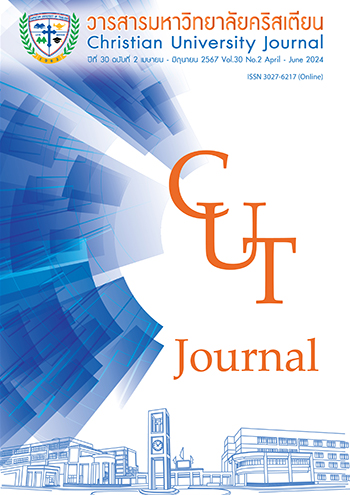การออกกำลังกายสมองด้วยเกมกระดานเพื่อป้องกันภาวะสมองเสื่อมในผู้สูงอายุ
คำสำคัญ:
ผู้สูงอายุ, สมองเสื่อม, เกมกระดานบทคัดย่อ
ในปัจจุบันภาวะสมองเสื่อมเป็นปัญหาทางสุขภาพที่พบได้มากขึ้นในผู้สูงอายุ เป็นความผิดปกติที่สมองทำงานด้อยลงจากเดิม ทำให้ความรอบรู้ ความคิด ความเฉลียวฉลาด และการตัดสินใจลดลง จนมีผลกระทบต่อการทำงานหรือการใช้ชีวิต ดังนั้นการควบคุมปัจจัยเสี่ยงที่เกี่ยวข้องกับความเสื่อมของสมอง จะช่วยลดอุบัติการณ์ของภาวะสมองเสื่อมได้ กิจกรรมที่กระตุ้นการทำงานของสมอง เช่น การเล่นเกมกระดาน สามารถพัฒนาการทำงานและความยืดหยุ่นของสมองให้ดีขึ้นได้ เนื่องจากกิจกรรมดังกล่าวช่วยกระตุ้นเนื้อเยื่อประสาท ทำให้แขนงเซลล์ประสาทแตกกิ่งก้านสาขาและเชื่อมโยงกันดียิ่งขึ้น ส่งผลให้เกิดการสื่อสารที่มีประสิทธิภาพระหว่างสมองส่วนต่าง ๆ มากขึ้น และการเล่นเกมกระดานยังช่วยเพิ่มการหลั่งสารนิวโรโทรฟินส์ (Neurotrophins) ช่วยให้สมองทำงานอย่างมีประสิทธิภาพยิ่งขึ้น ดังนั้นการเล่นเกมกระดานจึงมีประโยชน์อย่างยิ่งสำหรับผู้สูงอายุในการช่วยป้องกันหรือชะลอการเกิดภาวะสมองเสื่อม พัฒนาการสื่อสาร และการมีปฏิสัมพันธ์กับผู้อื่น ซึ่งเป็นปัจจัยสำคัญในการรักษาสุขภาพจิตที่ดีของผู้สูงอายุ
เอกสารอ้างอิง
กรมกิจการผู้สูงอายุ. (2566). สถานการณ์ผู้สูงอายุไทย พ.ศ.2565. กรุงเทพฯ: บริษัท อมรินทร์ คอร์เปอเรชั่นส์ จำกัด (มหาชน).
กรมกิจการผู้สูงอายุ. (2566). สถิติผู้สูงอายุ. สืบค้นจาก https://www.dop.go.th/th/know/side/1/1/2449
ฐิติพล ขำประถม. (2558). “บอร์ดเกม” ธุรกิจแนวใหม่ที่กำลังเติบโต. สืบค้นจาก https://www.komchadluek.net/news/kom-kid/204681
รัชนีวรรณ ตั้งภักดี. (2565). การพัฒนารูปแบบการสร้างบอร์ดเกมเพื่อการศึกษาในประเทศไทย. วารสารศึกษาศาสตร์ มสธ., 15(2), 117-132.
สฤณี อาชวานันทกุล. (2559). Board game universe จักรวาลกระดานเดียว. กรุงเทพฯ: แซลมอน.
สุขเจริญ ตั้งวงษ์ไชย. (2566). บอร์ดเกมกับผู้สูงอายุ ชะลอความเสื่อมของสมองจากโรคอัลไซเมอร์. สืบค้นจาก https://www.thairath.co.th/lifestyle/lifestyle45plus/2708577
อธิชา มูลเทียนทอง, นิศาชล บุบผา และอรุณณี ใจเที่ยง. (2566). ผลของโปรแกรมเกมกระดานบริหารสมองต่อการรู้คิดในผู้สูงอายุ. พยาบาลสาร มหาวิทยาลัยเชียงใหม่, 50(1), 271-283.
อินทิพร เมธาสิทธิ์. (2567). อย่าให้อาการหลงลืม เป็นจุดเริ่มต้นของ “การสูญเสียความทรงจำ” สืบค้นจาก https://www.bangkokhospitalhuahin.com/health-info/diseases-treatments/dementia_dr-inthiporn
Arvanitakis Z, Shah R C & Bennett D A. (2019). Diagnosis and management of dementia: Review. JAMA, 322(16), 1589-1599. doi: 10.1001/jama.2019.4782.
Boletsis K. (2016). Augmented reality serious gaming for cognitive health. (Doctoral dissertation, Norwegian University of Science and Technology). Retrieved from http://hdl.handle.net/11250/2398794
Bradley Mahoney. (2017). How to play: Settlers of catan. Retrieved from https://medium.com/board-game-brother/how-to-play-settlers-of-catan-e51c5a5aa4997f809e3f9a91
Bradley Mahoney. (2017). How to play: Ticket to ride. Retrieved from: https://medium.com/board-game-brother/how-to-play-ticket-to-ride-7f809e3f9a91
Chen, Y. & Janicki, S. (2020). A cognitive-based board game with augmented reality for older adults: Development and usability study. JMIR Serious Games, 8(4), e22007. doi: 10. 2196/22007.
Ching-Teng Y. (2019). Effect of board game activities on cognitive function improvement among older adults in adult day care centers. Soc Work Health Care, 58(9), 825-838. doi: 10.1080/00981389.2019.1656143.
Fiske, A. & Holmboe, K. (2019). Neural substrates of early executive function development. Dev Rev, 52, 42-62.doi: 10.1016/j.dr.2019.100866.
Fuentes JP., Villafaina S., Collado-Mateo D., de la Vega R., Gusi N., Clemente-Suárez VJ. (2018). Use of biotechnological devices in the quantification of psychophysiological workload of professional chess players. J Med Syst, 42(3), 40. doi: 10.1007/s10916-018-0890-0.
Kanthamalee, S., & Sripankaew, K. (2014). Effect of neurobic exercise on memory enhancement in the elderly with dementia. Journal of Nursing Education and Practice, 4(3), 69-78. https://doi.org/10.5430/jnep.v4n3p69
McCallum S. & Boletsis C. (2013). A taxonomy of serious games for dementia. Games for Health. Wiesbaden, Germany: Springer Vieweg.
Nakao, M. (2019). Special series on “effects of board games on health education and promotion” board games as a promising tool for health promotion: A review of recent literature. BioPsychoSocial Med, 13(5), doi: https://doi.org/10.1186/s13030-019-0146-3
Napatpittayatorn, P., Kritpet, T., Muangpaisan, W., Srisawat, C., & Junnu, S. (2019). Effects of neurobic exercise on cognitive function and serum brain-derived neurotrophic factor in the normal to mild cognitive impaired older people: A randomized control trial. Songklanakarin Journal of Science & Technology, 41(3), 551-558.
Neima Jahromi. (2020). The board-game series for the age of the coronavirus. Retrieved from https://www.newyorker.com/culture/culture-desk/pandemic-the-board-game-series-for-the-age-of-the-coronavirus
Sanghuachang W, Hengudomsub P, Chaimongkol N, Kotchabhakdi N. (2023). Effectiveness of neurobic exercise program on memory performance in community-dwelling older adults with mild cognitive impairment: A randomized controlled crossover trial. Belitung Nurs J, 9(2), 100-109. doi: 10.33546/bnj.2476.
Thai Pick. (2020). Ultimate Werewolf Deluxe เกมล่าปริศนามนุษย์หมาป่า Board Game ภาษาไทย. Retrieved from https://thaipick.com/product/shopee/5052907
World Health Organization. (2023). Dementia. Retrieved from https://www.who.int/news-room/fact-sheets/detail/dementia
Zatu Games. (2023). Cascadia–Kickstarter Edition. Retrieved from https://www.board-game.co.uk/product/cascadia-kickstarter-edition/
Zheng, J., Chen, X. & Yu, P. (2017). Game-based interventions and their impact on dementia: A narrative review. Australasian Psychiatry, 25(6), 562-565. doi: 10.1177/1039856217726686.
ดาวน์โหลด
เผยแพร่แล้ว
ฉบับ
ประเภทบทความ
สัญญาอนุญาต
ลิขสิทธิ์ (c) 2024 มหาวิทยาลัยคริสเตียน

อนุญาตภายใต้เงื่อนไข Creative Commons Attribution-NonCommercial-NoDerivatives 4.0 International License.



